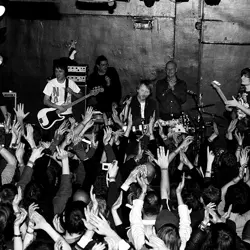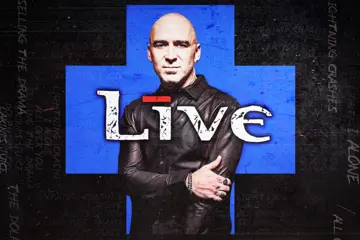 Radiohead
RadioheadToday’s a sad one for consumers of music, media, and music media, with Pitchfork – one of the scene’s most iconic and reputable publications – being gutted and merged into men’s culture magazine GQ.
The shock move was announced in a memo sent to staff at Condé Nast, the publishing giant that acquired Pitchfork in 2015. In the letter, Anna Wintour – the company’s chief content officer and the global editorial director of Vogue – wrote that she and her team would be “evolving our Pitchfork team structure by bringing the team into the GQ organisation”.
“This decision,” she explained, “was made made after a careful evaluation of Pitchfork's performance and what we believe is the best path forward for the brand so that our coverage of music can continue to thrive within the company. Both Pitchfork and GQ have unique and valuable ways that they approach music journalism, and we are excited for the new possibilities together.”
The news expectedly resulted in mass layoffs across Pitchfork’s editorial team. Those affected include the site’s first female editor-in-chief, Puja Patel, who came onboard in 2018 after previously heading up SPIN. She’s yet to comment publicly on her dismissal, but in Wintour’s letter to staff, she was described as “a wonderful colleague and advocate for the brand”.
Don't miss a beat with our FREE daily newsletter
Wintour went on to say that remaining Pitchfork staffers would “hear more about their reporting structure in meetings this week”. She wrote that there would be “no additional changes at this time” as the company focuses on its “internal team structure and operations”.
News: In a note to staff, Condé Nast announces that Pitchfork is being moved under GQ. pic.twitter.com/8NzvtYKFLB
— Max Tani (@maxwelltani) January 17, 2024
Also let go were the likes of feature editors Jill Mapes and Ryan Dombal, and writers Hannah Jocelyn and Matthew Ruiz. In a tweet, Mapes noted: “I've referred to my job at Pitchfork as being on a ferris wheel at closing time, just waiting for them to yank me down. After nearly [eight years], mass layoffs got me. Glad we could spend that time trying to make it a less dude-ish place just for GQ to end up at the helm.”
Jocelyn also lamented the GQ merger, writing in a tweet of her own: “I’m heartbroken at this Pitchfork news – not that it’s becoming a vertical, but it’s becoming a vertical under GQ, a men’s magazine, when the best parts of this past decade of Pitchfork championed diverse voices and diverse music.”
Meanwhile, Ruiz dubbed the move “a major L for journalism, criticism, and music in general”, while musician Dan Le Sac – who once scored an impressively brutal 0.2/10 score from Pitchfork (for his 2008 release Dan Le Sac vs. Scroobius Pip) – declared it to be “a net negative for musicians everywhere”. As he explained, “Whether you agree with a reviewer or not, music needs more journalism, not less.”
The overwhelming consensus is that Condé Nast have majorly fumbled the bag here. As pointed out by Complex editor Jade Gomez, “Most music writing now is just thinly veiled PR, most sites don’t push back and challenge trends, and there are few places that champion new and innovative artists. Pitchfork built that trust [with] their audience which is such a feat, and it’s because of the amazing writers and editors.”
“Jokes aside,” added culture writer Niko Stratis, “the Pitchfork news is a grim reminder of the sad state of media in 2024 as culture publications that actually have name recognition get turned into shades of their former selves as we consolidate all of media into a single Taco Bell.”
We may be slightly biased, but nonetheless: all of us here at TheMusic.com.au are sending our love, support and solidarity to everyone affected by the Pitchfork layoffs.















